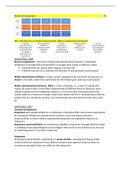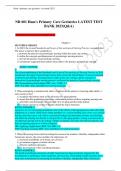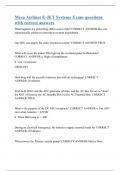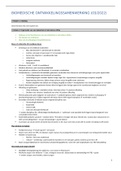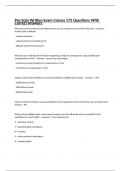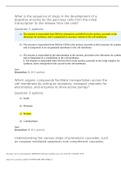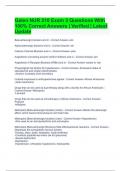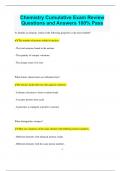Samenvatting
VOLLEDIGE samenvatting Media Entertainment (NIEUWSTE VERSIE 2020)
- Instelling
- Vrije Universiteit Amsterdam (VU)
Volledige samenvatting voor het tweedejaars Communicatiewetenschap vak Media Entertainment (S_ME). Samenvatting bevat alle college aantekeningen + samenvattingen van alle artikelen die je voor dit vak moet lezen (was geen boek voor dit vak namelijk). Ik heb alles zelf gelezen en samengevat. Als je ...
[Meer zien]
